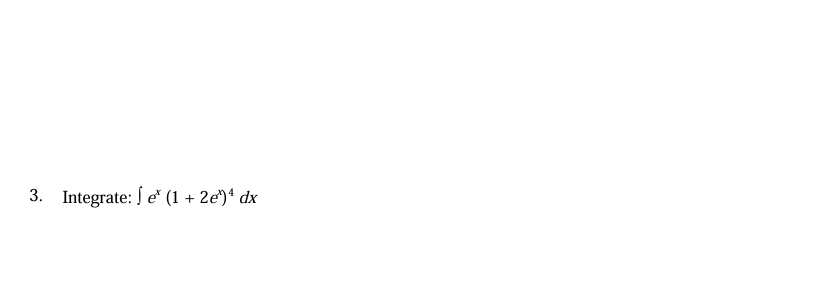Integrate: ∫ e^x (1 + 2e^4) dx

Understand the Problem
The question is asking to perform an integral involving an exponential function and a polynomial expression. The goal is to find the antiderivative of the function given within the integral, which includes the exponential term e^x and the polynomial (1 + 2e^4).
Answer
$$(1 + 2e^4)e^x + C$$
Answer for screen readers
The final answer to the integral is: $$(1 + 2e^4)e^x + C$$
Steps to Solve
-
Understanding the Integral We need to integrate the function ( e^x (1 + 2e^4) ). Notice that ( 1 + 2e^4 ) is a constant factor since it does not depend on ( x ).
-
Factor Out the Constant We can factor ( 1 + 2e^4 ) out of the integral: $$ \int e^x (1 + 2e^4) , dx = (1 + 2e^4) \int e^x , dx $$
-
Integrate ( e^x ) The integral of ( e^x ) is a well-known result: $$ \int e^x , dx = e^x + C $$
-
Combine Results Now substituting back into our equation, we get: $$ \int e^x (1 + 2e^4) , dx = (1 + 2e^4)(e^x + C) = (1 + 2e^4)e^x + C(1 + 2e^4) $$
The final answer to the integral is: $$(1 + 2e^4)e^x + C$$
More Information
The integral of an exponential function, like ( e^x ), is simply ( e^x ) itself. This property simplifies the integration process significantly. The constant factor ( 1 + 2e^4 ) simply scales the result.
Tips
- Forgetting to factor out the constant before integrating the exponential function.
- Not adding the constant of integration ( C ) at the end of the integration process.
AI-generated content may contain errors. Please verify critical information